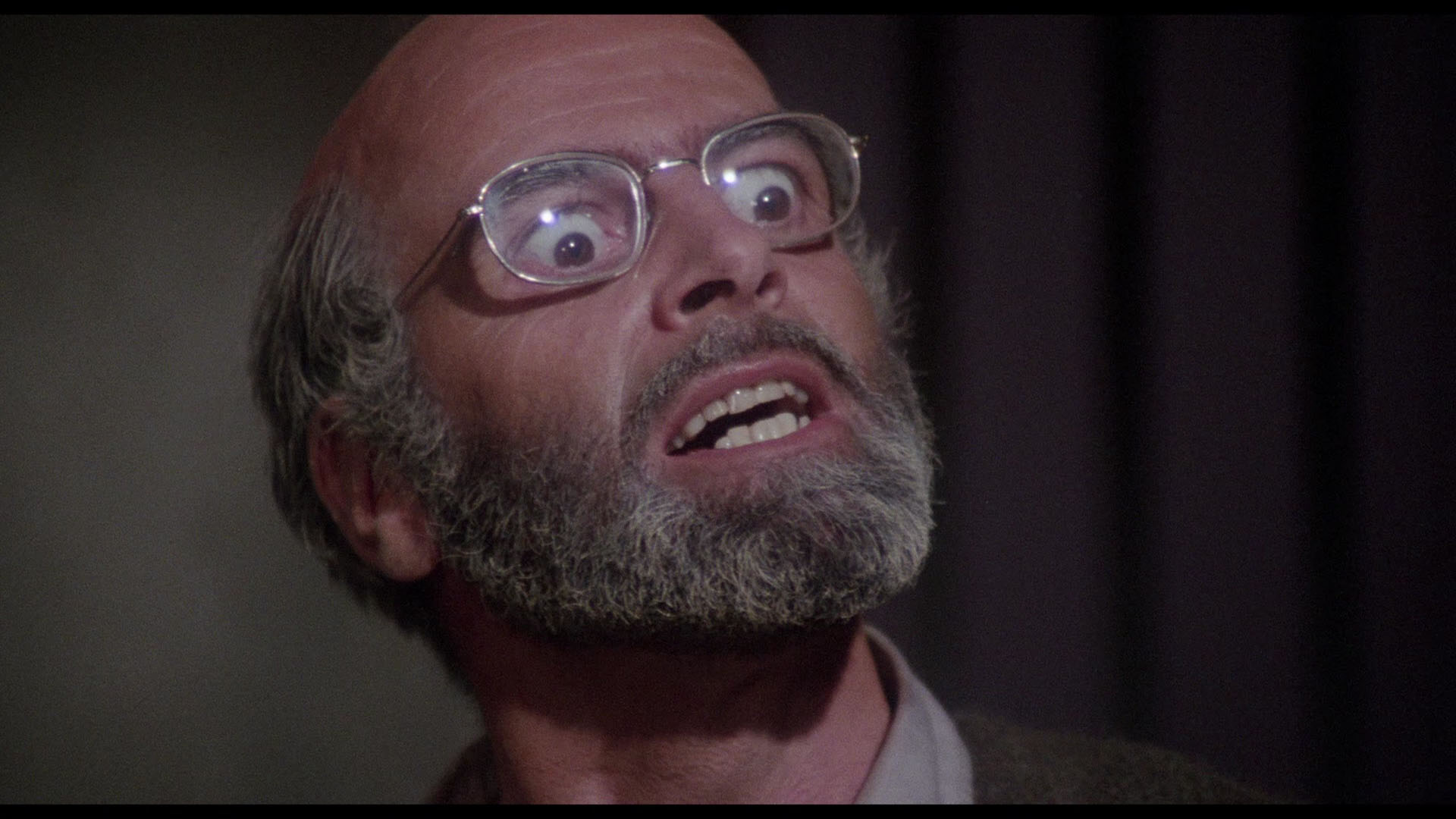
Color, 1975, 116 mins. 58 secs.
Directed by Arthur Hiller
Starring Maximilian Schell, Lois Nettleton, Lawrence Pressman
Kino Lorber (Blu-ray & DVD) (US RA/R1 HD/NTSC) / WS (1.85:1) (16:9)

Color, 1975, 116 mins. 58 secs.
Directed by Arthur Hiller
Starring Maximilian Schell, Lois Nettleton, Lawrence Pressman
Kino Lorber (Blu-ray & DVD) (US RA/R1 HD/NTSC) / WS (1.85:1) (16:9)

 One of the more ambitious attempts to fuse stage and screen in film history is the mid-'70s American Film Theatre series, an idea by producer Ely Landau to create a series of films faithfully capturing notable plays on the big screen. The 14 eventual films released between 1973 and 1975 were offered in a theatrical season-style arrangement, with viewers allowed to purchase a subscription to a whole, affordable "season" of releases. A host of notable directors and actors were brought on board, with names like John Frankenheimer, Joseph Losey, Harold Pinter, and Tony Richardson behind the camera for films like The Iceman Cometh, Butley, and Galileo. Sometimes the results could be astonishingly twisted, most notably an incredible version of Jean Genet's The Maids with Glenda Jackson and Susannah York. The series even netted an Oscar nomination for Best Actor -- for Maximilian Schell, star of The Man in the Glass Booth, an adaptation of a very controversial 1968 Broadway play written by Robert Shaw (yes, the star of Jaws and From Russia with Love), whose name was removed from the film for complicated reasons. (Basically he thought they were making severe changes to the film, and when he realized the adaptation was actually mostly faithful, it was too late to put his name back).
One of the more ambitious attempts to fuse stage and screen in film history is the mid-'70s American Film Theatre series, an idea by producer Ely Landau to create a series of films faithfully capturing notable plays on the big screen. The 14 eventual films released between 1973 and 1975 were offered in a theatrical season-style arrangement, with viewers allowed to purchase a subscription to a whole, affordable "season" of releases. A host of notable directors and actors were brought on board, with names like John Frankenheimer, Joseph Losey, Harold Pinter, and Tony Richardson behind the camera for films like The Iceman Cometh, Butley, and Galileo. Sometimes the results could be astonishingly twisted, most notably an incredible version of Jean Genet's The Maids with Glenda Jackson and Susannah York. The series even netted an Oscar nomination for Best Actor -- for Maximilian Schell, star of The Man in the Glass Booth, an adaptation of a very controversial 1968 Broadway play written by Robert Shaw (yes, the star of Jaws and From Russia with Love), whose name was removed from the film for complicated reasons. (Basically he thought they were making severe changes to the film, and when he realized the adaptation was actually mostly faithful, it was too late to put his name back).  Nazi-themed drama, Judgment at Nuremberg, Schell stars as Arthur Goldman, a cocky, wealthy, and seemingly paranoid Jewish industrialist and concentration camp survivor who spends his days in an opulent Manhattan penthouse and its sprawling rooftop. His assistant, Charlie (Pressman), is sometimes tested
Nazi-themed drama, Judgment at Nuremberg, Schell stars as Arthur Goldman, a cocky, wealthy, and seemingly paranoid Jewish industrialist and concentration camp survivor who spends his days in an opulent Manhattan penthouse and its sprawling rooftop. His assistant, Charlie (Pressman), is sometimes tested  by Goldman's politically incorrect barbs about being Jewish and his constant stories about a demonic German officer named Colonel Dorf, but things take an unexpected turn when Goldman is apprehended by Israeli law enforcement and put on trial encased in a glass booth for accused Nazi war crimes. Led by an even-handed prosecutor (Nettleton), the trial seems to be an indictment of a war criminal who evaded capture for decades, but even with eyewitness testimony, the truth turns out to be far more complicated.
by Goldman's politically incorrect barbs about being Jewish and his constant stories about a demonic German officer named Colonel Dorf, but things take an unexpected turn when Goldman is apprehended by Israeli law enforcement and put on trial encased in a glass booth for accused Nazi war crimes. Led by an even-handed prosecutor (Nettleton), the trial seems to be an indictment of a war criminal who evaded capture for decades, but even with eyewitness testimony, the truth turns out to be far more complicated.  during the trial) becoming an effective visual metaphor for the layers of delusion and denial at play within the entire human race.
during the trial) becoming an effective visual metaphor for the layers of delusion and denial at play within the entire human race. 
![]()